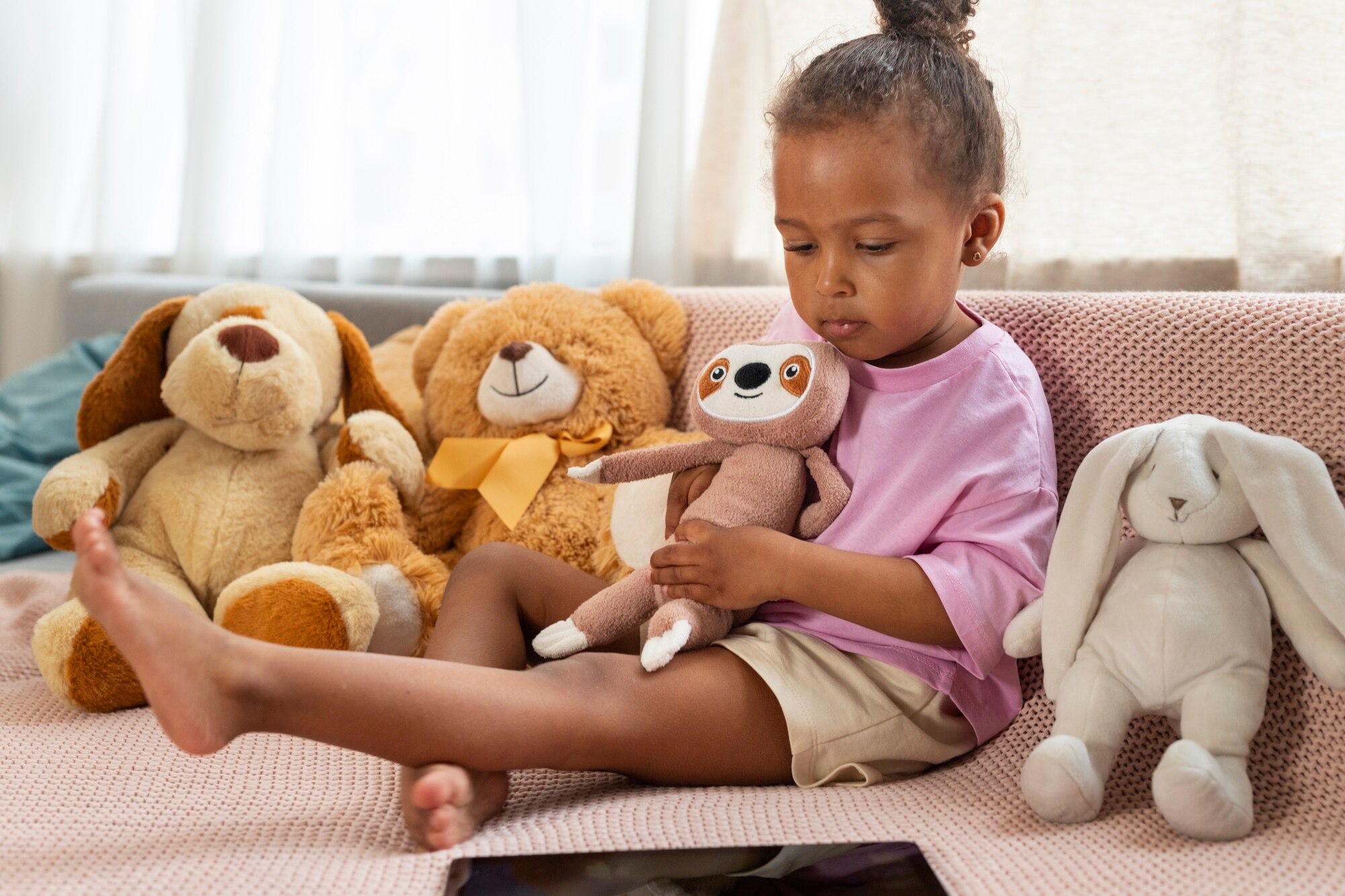No products added!
Toys are often viewed as mere playthings, but they play a vital role in children’s cognitive, social, emotional, and physical development. From building blocks to dolls, puzzles to playsets, toys are more than just entertainment; they are tools for learning and growth. In this article, we will explore the significance of toys in children’s lives and why they are essential for a well-rounded childhood.
Cognitive Development
Toys help children develop their problem-solving skills, hand-eye coordination, and critical thinking. Puzzles, building blocks, and shape sorters are excellent examples of toys that challenge children to think creatively and logically. These toys help children develop spatial awareness, understand cause-and-effect relationships, and enhance their memory and concentration.
Social and Emotional Development
Toys also play a crucial role in social and emotional development. Dolls and stuffed animals help children develop nurturing and empathy skills, while board games and card games teach children about sharing, taking turns, and cooperation. Toys like play kitchens and doctor’s kits encourage role-playing, which helps children develop social skills and understand different perspectives.
Language Development
Toys can also aid language development. Toys with sounds, music, and rhymes help children develop phonological awareness and language skills. Books with interactive elements like flaps, buttons, and textures encourage children to engage with stories and develop a love for reading.
Physical Development
Toys are essential for physical development, too. Building blocks, LEGO, and magnetic tiles help children develop fine motor skills and hand-eye coordination. Ride-on toys, balls, and outdoor play equipment promote gross motor skills like balance, coordination, and spatial awareness.
Creativity and Imagination
Toys that encourage creativity and imagination are vital for children’s development. Art supplies like crayons, paint, and markers help children express themselves and develop their artistic skills. Dress-up clothes, costumes, and props encourage children to use their imagination and engage in role-playing.
Social Skills
Toys can also help children develop social skills like sharing, cooperation, and conflict resolution. Board games and card games teach children about rules, boundaries, and good sportsmanship. Outdoor toys like balls and jump ropes encourage children to play together and develop teamwork skills.
Brain Development
Toys can even impact brain development. Research suggests that toys that challenge children’s problem-solving skills and encourage creativity can help develop the brain’s neural pathways. This can lead to improved cognitive function, memory, and concentration.
Conclusion
In conclusion, toys are not just playthings; they are essential tools for children’s development. They help children develop cognitively, socially, emotionally, and physically, while also encouraging creativity, imagination, and social skills. As parents and caregivers, it’s crucial to choose toys that align with our values and beliefs and engage in play with our children to strengthen our bond and create lasting memories. By recognizing the power of toys, we can provide our children with a well-rounded childhood and set them up for success in life.

